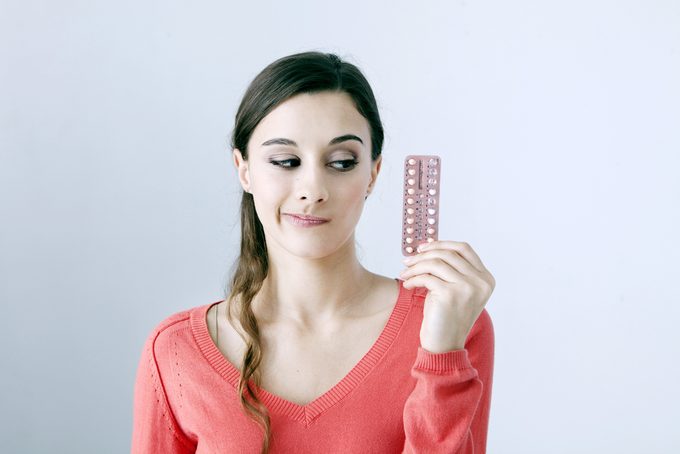Is It Safe To Stop Your Period?
Periods might not be necessary after all.

Saying Goodbye To Periods
Stopping your period, also known as period suppression, is a matter of personal choice, says Dr. Roger Pierson, director of research in obstetrics and gynecology at the University of Saskatchewan. “There is no known benefit [to stopping your period], but there’s also no known health risk,” he says.
Here are some facts to help you make your decision.
Is Stopping Your Period Even Possible?
While every woman’s body reacts differently, using any kind of combined hormonal birth control continuously will usually suppress menstruation, says Dr. Amanda Black, an Ottawa-based OBGYN and member of the Society of Obstetricians and Gynecologists of Canada’s (SOGC) extended hormonal contraception guideline committee.
Birth control patches, pills and vaginal rings will all stop your period if you use them every day without a break. The hormone injection Depo Provera and the hormonal IUD (Mirena) may also suppress menstruation. However, Seasonale is the only birth control brand specifically marketed for extended-cycle use. Approved by Health Canada in 2007, these pills are designed to give the user just four periods a year.
The Truth About Natural Periods
“Some people think that it’s natural to have a period every month when they are using birth control. But, it’s not a real period that you’re getting,” says Black. When you stop taking the birth control pill for seven days, you’re having a hormone-withdrawal bleed. This bleeding simulates what happens at the end of a regular menstrual cycle when estrogen and progesterone levels drop.
Meanwhile, when you take contraception continuously, you’re maintaining steady levels of those hormones. This means that withdrawal bleeding does not occur, says Black. So when you use birth control continuously, you’re suppressing withdrawal bleeding, not a natural period.
The History Of Monthly Periods
“If we go back a couple of thousand years, women were typically in some sort of a sexual relationship from the time they started having periods until they reached menopause,” says Pierson. With no contraception available, women were usually pregnant or lactating. For this reason, Pierson estimates that they may have only menstruated about five or six time in their lives.
“It was when we had efficient contraception that we got the idea that regular menstrual periods are normal. So to have someone declare that you need a regular menstrual period to be healthy, that’s just not the case,” he says.
What We Know About Period Suppression
According to the SOGC’s guidelines on continuous and extended use of hormonal contraception, taking the pill to suppress your period for a short period of time is as safe as using it in a 21-day cycle. Guidelines also state that evidence on the long-term safety of using hormonal contraception continuously aren’t available.
The longest period of time that researchers have officially followed women continuously taking the birth control pill is three years, says Black. “But the first studies published on this were in 1977, so it’s something that’s been done for a long time. We don’t have any reason to suggest that the risks would be any higher than it would be taking the birth control pill in the regular way.”




